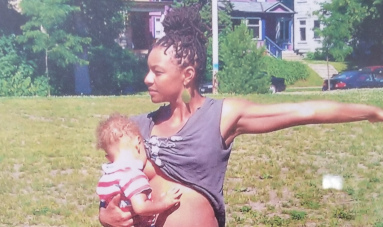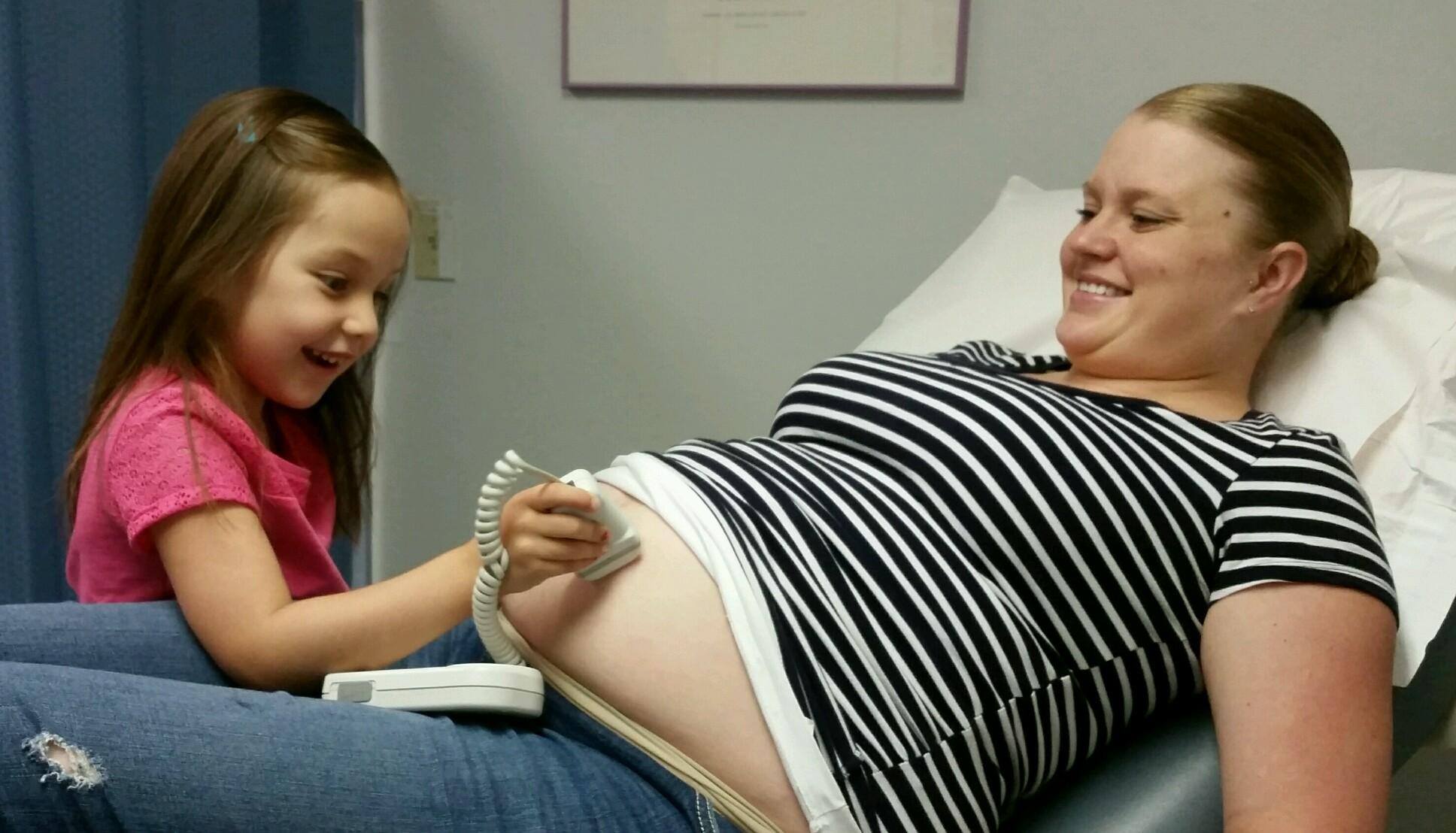Bringing a new baby into the family can bring exciting and sometimes confusing changes for your older children.
Fortunately, there are simple ways to help make this transition experience easier (or even exciting!) for your kids. Talk to them openly and honestly and involve them in the process.
The American Academy of Pediatrics (AAP) provides tips on how to handle initial discussions of a new baby, by your child’s age:
- Toddlers (1-2 years): Look at picture books about a new baby. When the baby arrives, give your toddlers a special gift or treat to remind them they are still loved.
- Preschoolers (2-4 years): Be honest that the baby will be cute but will cry and take a lot of your time. Let your preschooler help you plan for the baby by shopping with you for new baby items.
- School-Aged and older (5 years and up): Clearly explain the situation using language your kid understands. Have them come to the hospital shortly after the baby is born and make them feel like they have a role to play in caring for the new baby.
The more you prepare your kids for the new baby, the easier the transition can be. Here are five discussion topics to start preparing older siblings for a new baby.
1. Breastfeeding the New Baby
Breastfeeding is normal and natural, but your older children may not see it that way at first:
- Toddlers: They might view the new baby as competition for mom’s attention, especially if they are still breastfeeding themselves.
- Grade schoolers: Kids this age are starting to go through their own body changes and might feel uncomfortable if your breast is slightly exposed.
- Teens: During adolescence, your kids should have a better understanding of what’s going on but may feel a little uncomfortable during feedings at first.
What to Do: Explain what you are doing in a simple way your kids will understand. Let them know that this is how babies eat, and it will take less time as the new baby learns. Remind your older kids that you are excited to spend time with them as soon the baby finishes feeding.
You can also use the power of distraction for little kids! Keep them busy with books, games, or other activities while you breastfeed.

Breastfeeding Questions?
Answers to 5 Common Questions About Breastfeeding2. Not Having as Much Attention
Newborns need a lot of your time. That means less one-on-one time with your older kids, who might act out in response. Kids aren’t trying to be “naughty” in these situations. They may be sad, angry or confused—or trying to get attention.
What to Do: As a new parent, you may be exhausted, sleep-deprived and stressed. Your older child’s meltdown will not help but take a deep breath before you react. Approach them with calmness and empathy:
- Acknowledge your child is upset.
- Communicate that you want to help.
- Open the lines of communication.
For example, you might say, “I understand that you are upset, and I want to help. Can you tell me what’s bothering you?” If your child is too young to tell you with words, they can share non-verbally. Ask them to draw you a picture of what they are feeling or turn it into a game by asking questions and having them respond with either a thumbs up or thumb down.
Remind your kids that they are not being replaced and you love them just as much as you always have. Repeat this multiple times to help them accept the new baby’s place in your family.
3. Being Gentle with the Baby
When a new baby comes into the house, your other kids may feel curious and excited, and that is great! Sometimes that excitement comes out as being a little too rough when they kiss or hug their new sibling.
What to do: Explain to the older kids that the baby is not as strong as them and can’t play or move like they do. Most importantly, show your kids how to safely and gently handle the baby. Here are a few steps to start with:
- Show them how to hold the baby using a doll or stuffed animal.
- Have them mimic your behavior.
- Give positive reinforcement for being gentle with their toy.
- Make time for your older kids to roughhouse separately from the baby, with you or with each other.
When you feel like they understand, have them sit with you and hold the baby. Then let them hold the baby with pillows supporting them. When you feel confident, let them hold the baby by themselves.
Make sure older kids understand that they must never shake or drop the baby—this can cause permanent brain damage.
While it’s very important to be gentle, remember that the new baby is not as fragile as you might think. As long as the baby’s head and neck are supported and they don’t fall or get dropped, they’ll likely withstand their new siblings’ hugs and kisses.
Related Reading: When is the best time to announce your pregnancy?
4. How to be a Good Helper
Your older kids will be an important part of the new baby’s life. Helping them feel like good helpers is a great way to build a positive connection between them all. Teach them how to help do age-appropriate tasks:
- Toddlers: Sing to the baby, put away clothes, pass you items you need (diaper, rattle, burping cloth, etc.), give the baby gentle pats with a drying towel after a bath.
- Grade schoolers: Read the baby bedtime stories, help with diapering and feeding, play gently with the baby, help pick out the baby’s outfits.
- Teens: Babysit, help with bottle feedings/baby food, change diapers, change the baby’s nappies, take the baby out for walks with a stroller.
What to do: Allow kids to help. It can be tough if you are nervous about the new baby, but it’s important to involve the family in the newborn’s care. Reward older kids when they help appropriately. This builds their self-confidence and sense of security.
Hang in There—We’re Here for You!
Bringing a new baby home is a major life change. Your older children’s reactions will vary depending on their age. It might be tougher on kids who were previously an only child.
Many parents have gone through this (sometimes many times!). It’s normal if things are rocky for a while. Life will get easier as your family begins to adjust to their new routine.
If you have questions about how your older child is adjusting, talk with a pediatrician or family medicine provider. And as always, if you have questions about taking care of your new baby, give us a call. We are always happy to help you.

